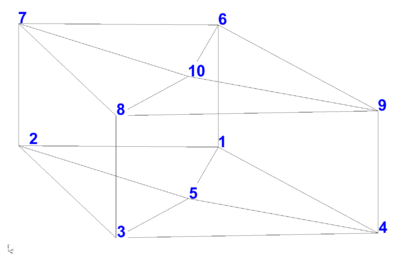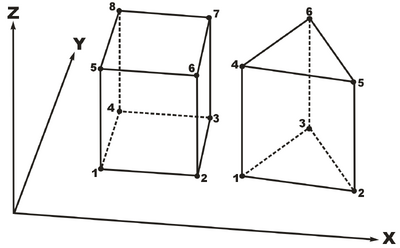Template:Renumber UGrid: Difference between revisions
From XMS Wiki
Jump to navigationJump to search
m (Protected "Template:Renumber UGrid" ([Edit=Allow only administrators] (indefinite) [Move=Allow only administrators] (indefinite))) |
No edit summary |
||
| (4 intermediate revisions by 2 users not shown) | |||
| Line 1: | Line 1: | ||
===Renumber UGrid=== | __NOINDEX__ | ||
__NOTOC__ | |||
===Renumber UGrid for HydroGeoSphere=== | |||
The ''Renumber UGrid'' tool renumbers a 3D UGrid to meet HydroGeoSphere requirements. | The ''Renumber UGrid'' tool renumbers a 3D UGrid to meet HydroGeoSphere requirements. | ||
| Line 22: | Line 24: | ||
HydroGeoSphere | Renumber UGrid | HydroGeoSphere | Renumber UGrid | ||
<noinclude>[[Category: | <noinclude>[[Category:Toolbox HGS]][[Category:HydroGeoSphere]]</noinclude> | ||
Latest revision as of 22:02, 8 November 2023
Renumber UGrid for HydroGeoSphere
The Renumber UGrid tool renumbers a 3D UGrid to meet HydroGeoSphere requirements.
The 3D UGrid consists of a set of vertically offset node sheets, each of which is identical in 2D. Between consecutive node sheets is a layer of elements.
- The ordering of elements within each layer is identical, as is the ordering of nodes within each node sheet.
- Nodes are ordered from the bottom sheet (bottom of the domain) to the top sheet (top of the domain).
- Similarly, elements are ordered from the bottom layer (bottom of domain) to the top layer (top of domain).
- Any ordering of elements and nodes within a 2D layer or sheet is fine, so long as it is consistent among all layers and sheets.
- Local node numbering per cell must follow the convention illustrated in Figure 2.
Input Parameters
- Input UGrid – The UGrid to be renumbered.
Output Parameters
- Output UGrid – The name of the UGrid that will be created.
Current Location in Toolbox
HydroGeoSphere | Renumber UGrid

